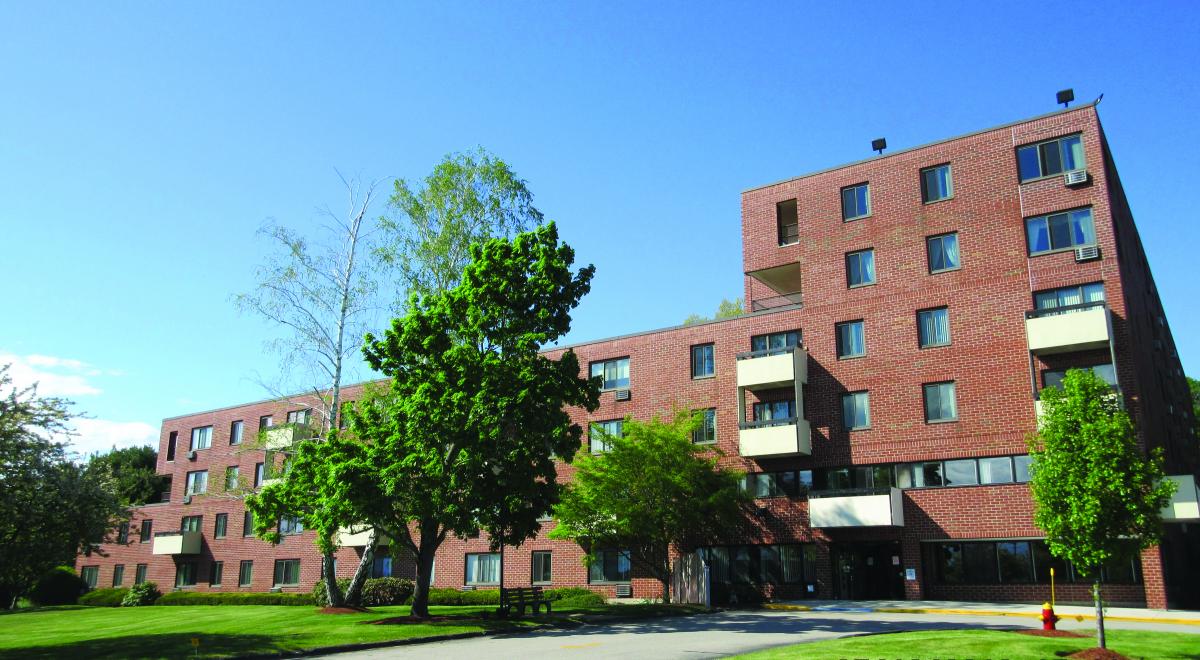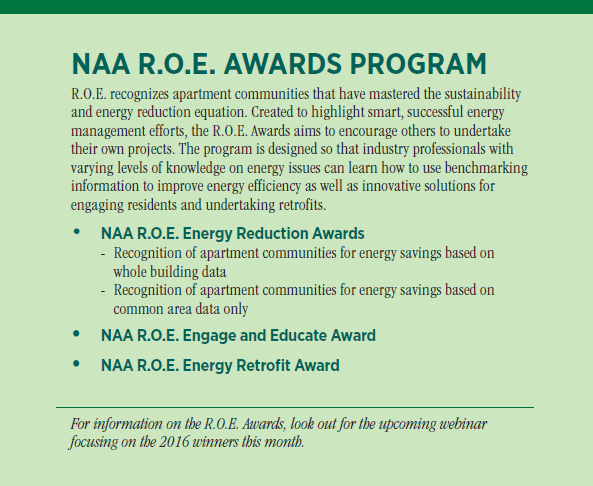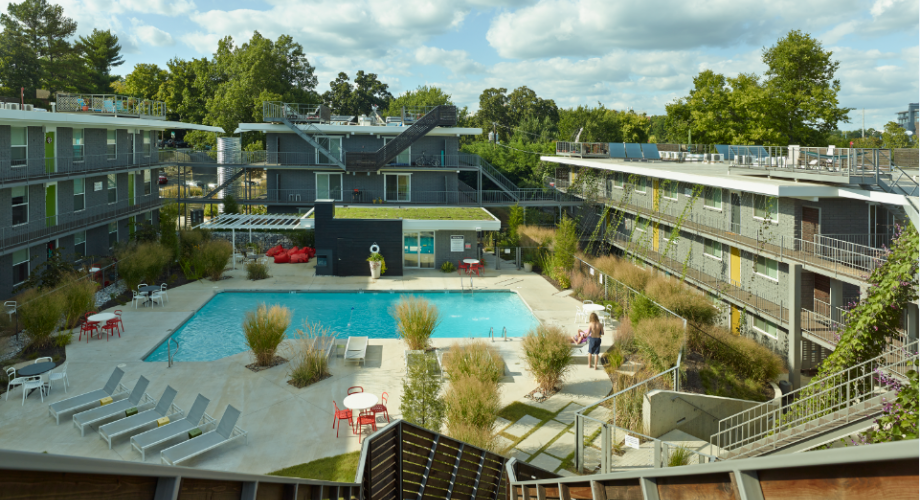When it comes to apartment communities Eco Modern Flats and Heritage House, the developers did not intend to focus on how to create a low-impact environmental footprint.
That changed after their respective property management company acquired them. The respective supervising teams decided to undertake retrofitting projects at each in an effort to tie environmental responsibility with sound business sense.
The progress resulting from the energy efficiency endeavors made each prime candidates for the 2016 R.O.E awards.
Eco Modern Flats
Constructed in the 1970s, the apartment community consisting of four separate buildings built entirely of concrete appeared dated by modern standards. The team at Specialized Real Estate Group acquired the property and after running a test case, immediately realized the community’s potential.
“The buildings provided a great canvas for energy-efficiency retrofits,” Corey Runnells, Vice President for Specialized Real Estate Group, says. When acquired in 2007, options for green financing were limited, so the company became a maverick within this space. The management team went forward with financing despite not having the avenues now available for sustainable improvements, trusting that the return on investment (ROI) would justify the project.
With proper insulation, the concrete structure provided an excellent envelope. The apartment homes’ layout enabled the design team direct access to each individual apartment from the outside. The construction crew replaced the individual HVACs and plumbing and installed new EnergyStar-rated washers and dryers.
Additionally, two direct solar energy water heaters were included in the plumbing system for the entire community. Given the age of the buildings, the process ran relatively smoothly. There was only one major drawback: drilling through concrete was difficult and added time to the project, but was not a task that was insurmountable.
Eco Modern Flats’ subsequent energy usage and resident billing system is innovative. The original construction of the apartment community did not lend itself the ease of installing individual electric meters, which would not have been cost effective. By adding new spray-foam insulation and by working directly with the local energy utility company, the monthly electric bills at Eco Modern Flats became reasonable in comparison to local counterparts at an average of $65 per unit.
“All-in-one rent, including all utilities, Internet and basic cable, is a great selling point with potential residents,” Sarah King, Head of Marketing and Community Outreach, says. “The resident base at the Eco Modern Community are also quite diverse. It includes working professionals, retirees and students. The dedication to green living and appreciation of the opportunities that the Eco Modern Flats affords them unites them. Our rents are priced so that residents don’t have to worry about fluctuating energy costs.”
The ongoing success of this project spurred Specialized Real Estate Group to continue with other communities. A new apartment community with 308 units is underway.
“The 100 percent occupancy rate shows that demand for energy-efficient apartment living is there,” Corey says. “Overall, Eco Modern Flats opened our company’s eyes to the possibility we can offer environmentally sound apartments and make a profit at the same time.”
Heritage House
This thriving community, nestled within historic Newburyport, Mass., offers seniors an affordable living opportunity with a variety of amenities. A progressive focus on energy efficiency drove multiple capital improvements, including LED lighting and premium efficiency heating boilers.
The Energy and Sustainability Team at WinnCompanies prepared a cautious approach for resident to help them adjust to new technology. For example, the new LED lighting has integral occupancy and daylight sensors, which automatically dim illumination when no residents are present. Before installation, WinnCompanies tested the technology in a limited area of the hallways and sought resident feedback. Subsequently, the senior residents were not caught off-guard with the dimmed lighting scheme during evening.
Similarly, with the boiler replacement, a carefully sequenced approach allowed for the existing boilers and domestic hot water heaters to continue operation during the new system’s construction. The community’s proactive measures reduced the potential for resident disturbance or equipment downtime significantly. When the changeover occurred, the transition from the older, inefficient boilers to new condensing equipment happened seamlessly, with hardly any disruption.
The project at Heritage House is a prime example of the green retrofits underway across WinnCompanies’ expansive portfolio. Darien Crimmin, Vice President of Energy and Sustainability, laid the foundation for the WinnCompanies’ commitment to sustainability by emphasizing energy efficiency retrofits and continuous innovation. At WinnCompanies’ other properties, it pioneered innovative community solar projects that expect to save low-income communities hundreds of thousands of dollars per year while supporting clean energy.

Crimmin and the rest of the management team continually advocate for policies and utility incentives that ensure low-income communities are included in the emerging clean energy economy. For example, WinnCompanies applied for funding through the Low Income Energy Affordability Network, which administers utility ratepayer grants and other statewide energy efficiency funding for affordable housing communities in Massachusetts. The network created an advocacy campaign enabling Massachusetts to become a role model for energy retrofits in affordable housing.
The success of both R.O.E. winners’ sustainable renovation projects prove energy efficiency retrofits are not confined to new construction and higher-end housing stock. Residents of both communities appreciate the sustainable improvements, as the low vacancy and turnover rate indicate.
